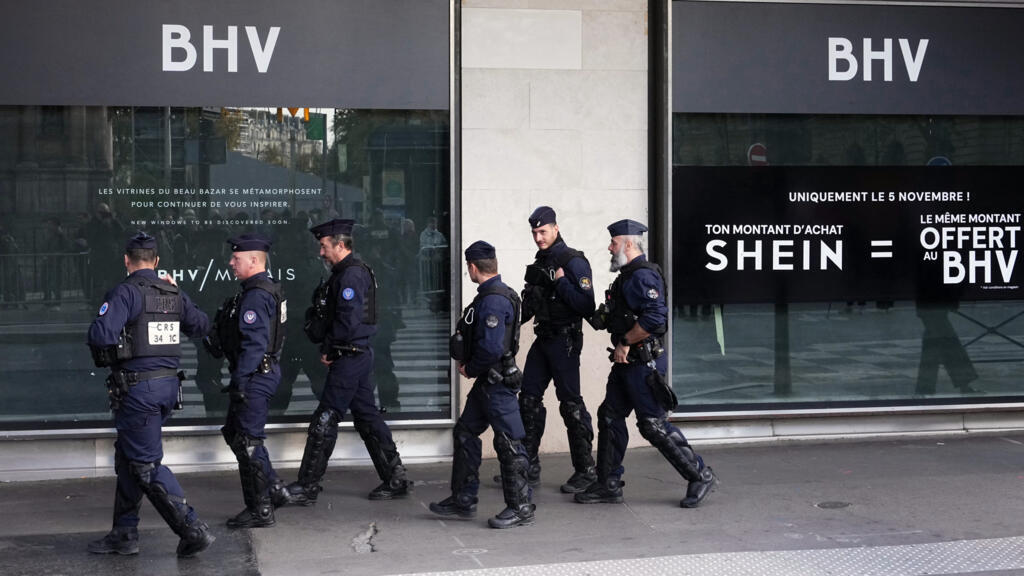
Chinese ultra fast-fashion giant Shein on Wednesday opened its first-ever physical store inside Paris’s BHV department store. The brand’s rock-bottom prices and opaque supply chains have long been criticised for their environmental and human costs – while a recent scandal over child-sex-themed dolls sold on its website has added to the controversy.
The opening has divided shoppers, with some eager to browse while others vow to stay away.
“I’ll go have a look to see the prices, compare them with the website, and see how they’ve designed the store. It could be interesting just to check it out,” one woman told RFI.
Many are expected to do more than just look. The company promises the same low prices found online. One shopper admitted she was aware of the problems but would still buy something.
“The way they make their clothes isn’t very ecological, and that does affect us,” she said. “But I’ll probably still buy something.”
Covering 1,200 square metres, the store focuses mainly on women’s fashion. Some visitors hope the shop might even encourage more mindful consumption.
“Maybe having a physical shop will reduce the quantity people order online,” another Parisian said. “If you can see the clothes directly, maybe it will regulate things a bit.”
Not everyone agrees. A group of 18-year-olds said they would boycott Shein altogether for ecological reasons.
“I think it’s important for young people like us to take a stand,” one of them said. “On social media, I share posts and talk about it with my friends.”
Shein is under investigation in France after anti-fraud officials reported finding child-like sex dolls for sale on its website. The company has since announced a global ban on such products and said it is cooperating with investigators.
Shein bans sex dolls, offers to share buyers’ details in French probe
Speed and algorithms
BHV is betting the new store will draw in a younger audience, though it’s a risky move as ultra fast-fashion faces increasing backlash.
Shein now claims 85 million users worldwide, with major markets in the United States, Germany, the United Kingdom and France – where it has around 25 million customers.
Its rapid rise is driven by a business model that blends algorithms with hyper-efficient production, said Silvano Mendes, a fashion journalist and lecturer at Sorbonne-Nouvelle University.
“Shein was founded in 2008 by Chris Xu, a Chinese entrepreneur who started out selling wedding dresses before moving online,” Mendes told RFI.
“The company relies heavily on search engines, algorithms and artificial intelligence to spot trends almost instantly.”
He said Shein’s strength lies in its supply chain.
“They’ve found small workshops that can produce huge numbers of styles at extremely low cost,” Mendes said.
“On top of that, they deliver fast, using chartered planes to ship directly to Western markets. It’s no longer just fast-fashion – it’s ultra fast-fashion.”
Shein reported to French justice over sale of 'childlike' sex dolls
Direct factory links
In just a few years, Shein has established itself as a formidable competitor, alarming other players in the textile sector. Its system connects customers directly with factories through its digital platform.
The company now works with more than 7,000 suppliers – most of them in China – and sells its products in more than 150 countries. These short supply chains keep prices extremely low: an average of seven euros for a clothing item, roughly four times cheaper than at Spanish rival Zara.
Beyond clothing, Shein also sells shoes, home décor and beauty products.
Powered by artificial intelligence and data from millions of online searches, Shein can upload thousands of new designs each day based on customer demand.
This model has fuelled criticism on both environmental and labour grounds. Reports describe workers putting in 12-hour shifts, seven days a week.
This article was adapted from the original version in French







